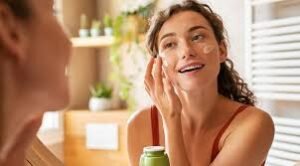Urban Living: The Impact of City Pollution on Your Hair
Living in an urban environment has its perks—proximity to amenities, vibrant culture, and diverse opportunities. However, city life comes with its own set of challenges, especially when it comes to the health of your hair. Living in an urban environment has its perks—proximity to amenities, vibrant culture, and diverse opportunities the impact ofCity pollution can have a significant impact on your hair, leading to various issues such as dryness, damage, and increased hair loss. Urban Living, we will explore the effects of city pollution on your hair and provide practical solutions to combat these effects.
Understanding City Pollution and Its Components
Urban pollution consists of various harmful substances, including:
- Particulate Matter (PM): Tiny particles from vehicle emissions, construction sites, and industrial processes.
- Nitrogen Dioxide (NO2): A gas produced by burning fossil fuels.
- Sulfur Dioxide (SO2): A gas released by industrial processes and vehicle emissions.
- Volatile Organic Compounds (VOCs): Chemicals released from products like paints, cleaning supplies, and personal care items.
- Ozone (O3): A reactive gas formed when pollutants react with sunlight.
These pollutants can settle on your scalp and hair, leading to a range of problems.
The Impact of City Pollution on Your Hair
1. Dryness and Dehydration
Keyword: hair dryness and dehydration
Pollutants such as SO2 and NO2 can strip your hair of its natural oils, leading to dryness and dehydration. This makes your hair feel brittle and prone to breakage.
2. Scalp Irritation and Sensitivity
Keyword: scalp irritation
Pollutants can cause scalp irritation and increase sensitivity. This can result in itching, redness, and discomfort, making it challenging to maintain a healthy scalp environment.
3. Hair Damage
Keyword: hair damage
Particulate matter and other pollutants can cause physical damage to your hair. They can weaken the hair shaft, leading to split ends, breakage, and an overall lack of luster.
4. Increased Hair Loss
Keyword: increased hair loss
Prolonged exposure to pollutants can lead to increased hair loss. Pollutants can cause inflammation in the hair follicles, weakening them and leading to premature hair shedding.
5. Dullness and Lack of Shine
Keyword: hair dullness
Pollutants can accumulate on the surface of your hair, creating a barrier that prevents light from reflecting off your hair strands. This leads to dull, lifeless-looking hair.
How to Combat the Effects of City Pollution on Your Hair
1. Regular Cleansing
Keyword: regular hair cleansing
Regularly washing your hair is crucial to remove pollutants and prevent them from building up on your scalp and hair. Use a gentle, sulfate-free shampoo that effectively cleanses without stripping your hair of its natural oils. Consider washing your hair 2-3 times a week, or more frequently if you live in a highly polluted area.
2. Deep Conditioning
Keyword: deep conditioning
Incorporate deep conditioning treatments into your hair care routine to restore moisture and repair damage caused by pollutants. Use a deep conditioner or hair mask once a week to nourish your hair and keep it hydrated.
3. Scalp Care
Keyword: scalp care
Maintaining a healthy scalp is essential for healthy hair growth. Use a scalp scrub or exfoliating treatment to remove buildup and promote better circulation. Look for products containing soothing ingredients like tea tree oil, peppermint, and aloe vera to calm irritation.
4. Protective Hairstyles
Keyword: protective hairstyles
Wearing protective hairstyles can help shield your hair from environmental pollutants. Styles like braids, buns, and twists can reduce the amount of exposed hair, minimizing contact with pollutants.
5. Antioxidant-Rich Products
Keyword: antioxidant hair products
Antioxidants can neutralize free radicals caused by pollution and protect your hair from damage. Look for hair care products enriched with antioxidants like vitamin E, vitamin C, and green tea extract.
6. Leave-In Conditioners and Serums
Keyword: leave-in conditioners
Leave-in conditioners and serums can provide an additional layer of protection against pollutants. These products help to seal the hair cuticle, preventing pollutants from penetrating and causing damage.
7. Healthy Diet and Hydration
Keyword: healthy diet for hair
A balanced diet rich in vitamins and minerals is essential for healthy hair. Include foods high in antioxidants, such as fruits and vegetables, to combat oxidative stress. Staying hydrated by drinking plenty of water also helps maintain the health of your hair and scalp.
8. Regular Trims
Keyword: regular hair trims
Regular trims can help manage split ends and prevent further damage. Schedule a trim every 6-8 weeks to keep your hair looking healthy and vibrant.
9. Avoiding Heat Styling
Keyword: avoid heat styling
Excessive heat styling can exacerbate the damage caused by pollution. Try to minimize the use of heat tools like blow dryers, straighteners, and curling irons. When you do use them, apply a heat protectant spray to reduce damage.
10. Using Air Purifiers
Keyword: air purifiers for hair
Using air purifiers at home can reduce indoor air pollution, providing a cleaner environment for your hair. Air purifiers can filter out pollutants, allergens, and other harmful particles, improving the air quality and reducing the burden on your hair and scalp.
Pollutants Harm Skin and How to Protect Against Them

Conclusion
Urban living exposes your hair to a variety of pollutants that can cause dryness, damage, scalp irritation, and increased hair loss. However, with the right hair care routine and protective measures, you can combat the effects of city pollution and maintain healthy, beautiful hair. Regular cleansing, deep conditioning, scalp care, and the use of antioxidant-rich products are essential steps to protect your hair. Additionally, adopting protective hairstyles, maintaining a healthy diet, and using air purifiers can further enhance your hair’s resilience against environmental pollutants. By taking these proactive steps, you can enjoy the benefits of city life without compromising the health and beauty of your hair.
Keywords: hair dryness and dehydration, scalp irritation, hair damage, increased hair loss, hair dullness, regular hair cleansing, deep conditioning, scalp care, protective hairstyles, antioxidant hair products, leave-in conditioners, healthy diet for hair, regular hair trims, avoid heat styling, air purifiers for hair.







Leave a reply